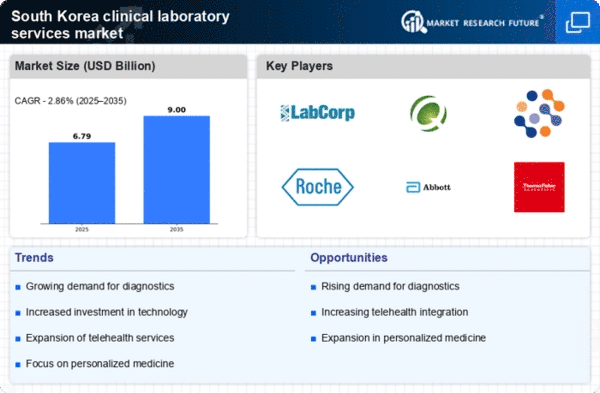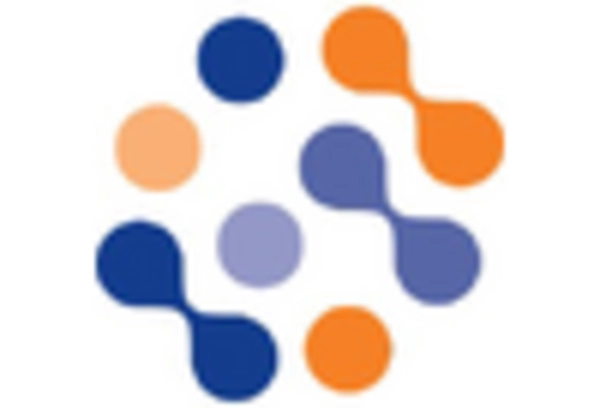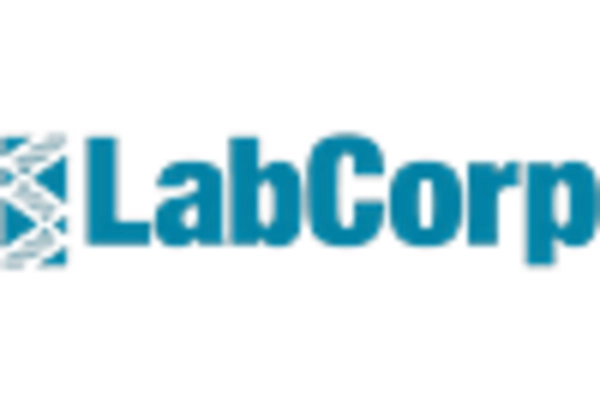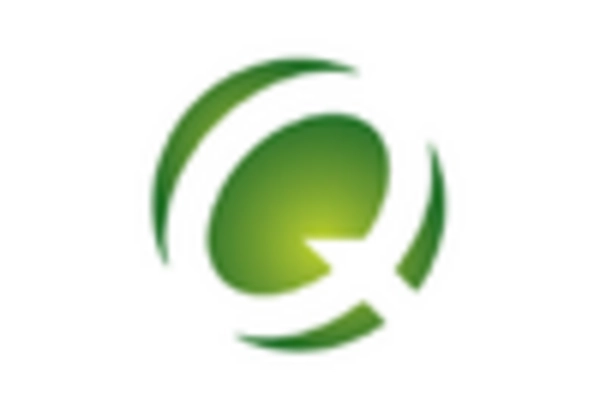Rising Chronic Disease Prevalence
The increasing prevalence of chronic diseases in South Korea is a pivotal driver for the clinical laboratory-services market. Conditions such as diabetes, cardiovascular diseases, and cancer are on the rise, necessitating regular diagnostic testing and monitoring. According to recent health statistics, approximately 30% of the adult population is affected by chronic illnesses, leading to a heightened demand for laboratory services. This trend is expected to continue, as the aging population further exacerbates the situation. Consequently, clinical laboratories are likely to expand their service offerings to accommodate the growing need for specialized tests and screenings, thereby enhancing their market presence and revenue potential.
Government Initiatives and Funding
Government initiatives aimed at enhancing healthcare infrastructure are significantly influencing the clinical laboratory-services market. The South Korean government has been increasing its investment in healthcare, with a focus on improving diagnostic capabilities and access to laboratory services. Recent budgets indicate a commitment of over $1 billion towards healthcare advancements, which includes funding for laboratory technology upgrades and research initiatives. Such support not only boosts the operational capacity of clinical laboratories but also encourages innovation within the sector. As a result, laboratories are likely to benefit from improved resources and capabilities, fostering growth and expansion in the market.
Shift Towards Personalized Medicine
The shift towards personalized medicine is emerging as a crucial driver for the clinical laboratory-services market. As healthcare moves away from a one-size-fits-all approach, there is an increasing demand for tailored diagnostic tests that cater to individual patient profiles. This trend is particularly evident in oncology, where genetic testing is becoming essential for determining the most effective treatment plans. The market for personalized medicine is projected to grow at a CAGR of 15% over the next five years, indicating a robust opportunity for clinical laboratories to develop specialized testing services. By aligning their offerings with this trend, laboratories can enhance their relevance and profitability in a competitive landscape.
Technological Integration in Diagnostics
The integration of advanced technologies in diagnostic processes is transforming the clinical laboratory-services market. Innovations such as artificial intelligence, automation, and molecular diagnostics are streamlining operations and improving accuracy. For instance, the adoption of AI-driven analytics can enhance the interpretation of complex test results, potentially reducing turnaround times by up to 50%. Furthermore, automation in laboratories minimizes human error and increases throughput, allowing facilities to handle a higher volume of tests efficiently. As these technologies become more prevalent, laboratories in South Korea are likely to invest significantly in upgrading their systems, which could lead to improved patient outcomes and increased market competitiveness.
Growing Public Awareness of Health Issues
There is a notable increase in public awareness regarding health issues in South Korea, which is driving the clinical laboratory-services market. Educational campaigns and health initiatives have led to a more health-conscious population that actively seeks preventive care and regular health screenings. Surveys indicate that over 60% of individuals are now more inclined to undergo routine tests, reflecting a shift towards proactive health management. This growing awareness is likely to result in a sustained demand for laboratory services, as individuals prioritize early detection and treatment of potential health problems. Consequently, clinical laboratories may experience a surge in patient volume, positively impacting their financial performance.

















